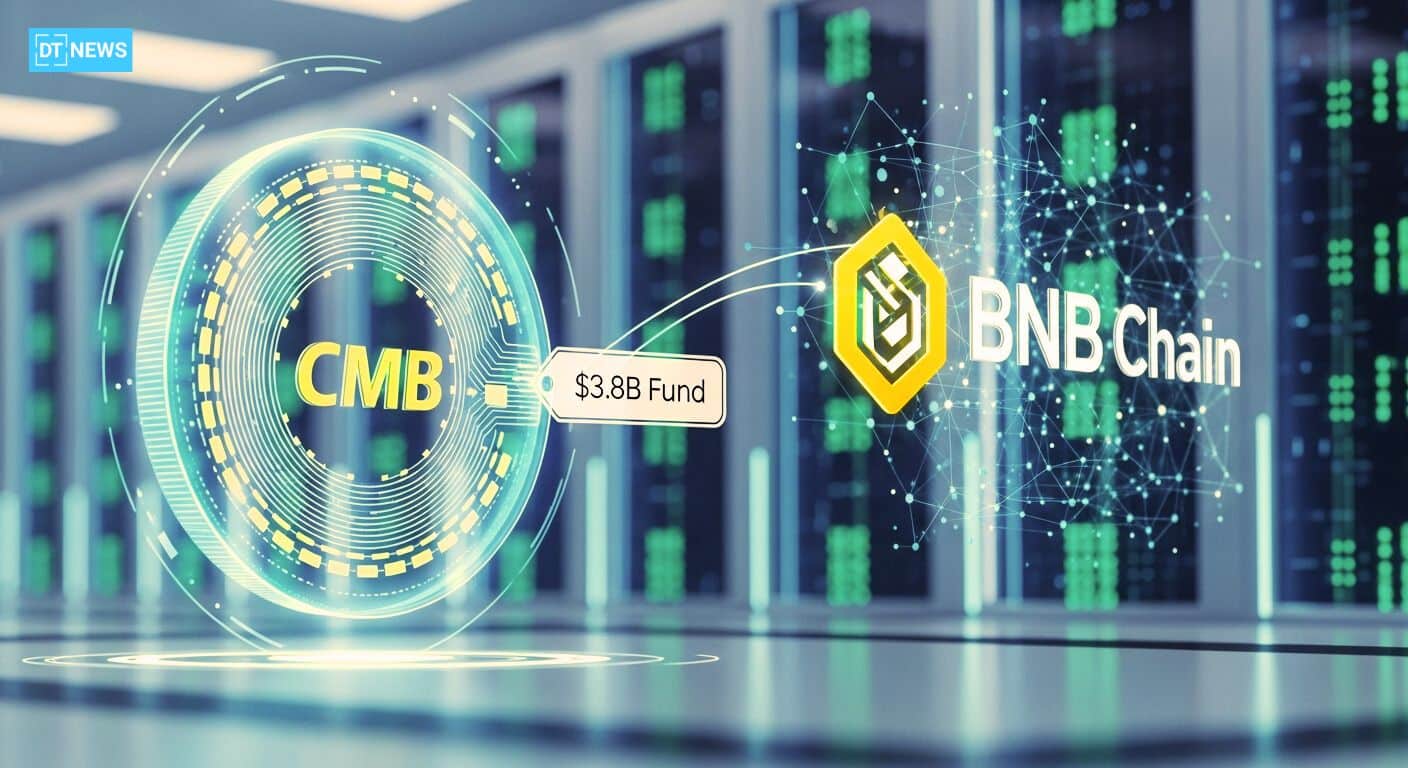This Article Was First Published on Deythere.
According to latest industry reports, China Merchants Bank International (CMBI) has tokenized a $3.8 billion USD money market fund on BNB Chain, issuing CMBMINT / CMBIMINT tokens. Accredited investors can subscribe with fiat or stablecoins and redeem via smart contracts in real time.
This is a huge one for institutional confidence in on-chain real-world asset (RWA) tokenization and BNB Chain as a platform for large-scale on-chain finance. As BNB’s price continues to hit new highs, this influx of institutional capital may just strengthen its fundamentals and narrative.
The CMBI Fund Goes On-Chain
CMB International’s USD Money Market Fund has been a top performer in Asia-Pacific markets. The fund was tokenized on BNB Chain with DigiFT (distribution) and OnChain (infrastructure).
This tokenization allows accredited investors to access the fund onchain, subscribe via fiat or stablecoins, with real-time redemption built into smart contracts.
The tokens: CMBMINT and CMBIMINT; are part of BNB Chain’s DeFi ecosystem, so can be used in lending or yield strategies via Venus and ListaDAO.
The fund is a sub-fund of an open-ended umbrella in Hong Kong, and allocates at least 70% of its net asset value to USD-denominated short-term deposits and high-quality instruments.
Since its inception in early 2024, its assets under management (AUM) have grown from $2.9B to $3.6B by August 2025.
What This Means for BNB Chain and Institutions
This integration puts $BNB beyond just token use and into infrastructure for regulated finance. Institutions can now use BNB’s scale, low fees and developer ecosystem to build out operations that interface with TradFi.
This reinforces BNB Chain’s tokenization stance that it’s also for real-world asset workflows. As one analyst put it, this is China’s boldest RWA move yet.
While some reports say Beijing has asked Hong Kong brokerages to pause RWA projects, the Hong Kong and BNB alignment means cross-border tokenization can still happen in a regulated way.
In the markets, $BNB has risen strongly this year, more than doubled and hit new highs multiple times. But it recently dropped 11% from its peak. CoinDesk notes this pullback happened even as institutional and network activity increases.
Hence, this tokenization could be a catalyst to support deeper adoption, gas demand, staking, and on-chain volume to back up BNB’s use case.
Tokenization in Action: The Ecosystem and Use Cases
The token form, CMBMINT/CMBIMINT, is designed to actually be used in DeFi protocols across the BNB Chain. For instance, users can already integrate these tokens with Venus Protocol and ListaDAO to lend, borrow or get some extra capital.
Because subscription and redemption happen in real-time, due to DigiFT’s liquidity management smart contracts, investors get their results on the spot. That means less friction and cost for everyone.
Tokenization not only makes it possible to break down assets into smaller, more manageable bits (fractionalization) and trade them in real-time, it also opens the doors to institutional funds for parts of the market that were previously off-limits.
Plus, smart contract settlement gives users the transparency, auditability and programmability that traditional finance often can’t match.
Conclusion
Based on the latest research, the tokenization of CMBI’s $3.8 billion fund on BNB Chain is a remarkable stride in bringing the world of traditional finance and Web3 together.
By issuing CMBMINT / CMBIMINT tokens with real-time subscription and redemption via the on-chain infrastructure, BNB Chain is engraving itself as a serious RWA platform. Even with the short-term price volatility $BNB has experienced, this influx of capital and legitimacy could end up boosting the long-term value proposition.
Glossary
Real-World Asset (RWA): A real, offline financial asset (funds, real estate, debt) represented on blockchain as token(s).
Tokenization: The process of converting rights to an asset into a digital token on a blockchain.
Smart contract redemption: A protocol mechanism that allows users to redeem tokenized assets automatically, via blockchain logic.
Fractionalization: Dividing ownership of an asset into smaller units; to allow broader access.
Liquidity management: Smart contract functions that ensure tokens can be bought, sold, or redeemed efficiently.
DeFi protocol integration: The process by which tokenized assets can be used within decentralized finance systems (lending, borrowing, yield).
Frequently Asked Questions About BNB Chain Tokenization
What is CMBI doing on BNB Chain?
CMBI has tokenized its $3.8 billion USD Money Market Fund on BNB Chain, issuing tokens (CMBMINT / CMBIMINT) that investors can subscribe via fiat or stablecoins and redeem in real time.
How is this different from typical crypto tokens?
These tokens represent real financial assets. They carry real-world backing, and redemption is built into the smart contracts, providing transparency and real asset linkage.
Why is this a big deal for BNB Chain?
It proves BNB is not only a utility chain but a platform for institutional finance and large-scale tokenization, leading to more credibility, onchain volume and infrastructure demand.
What could go wrong?
If regulatory intervention blocks RWA issuance; or if adoption is weak, the narrative could fail. Also, execution failures or capital misallocation could hurt confidence.



















































































































